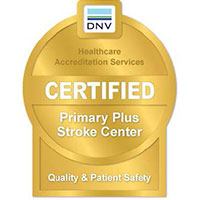Arizona’s summer heat can affect the heart
Jun 29, 2021Carondelet physician offers tips to cope during summer’s extreme heat
TUCSON - Summer is here and many will be enjoying outdoor activities. But before you spend more time under the sun, it’s important to know how high temperatures can affect the heart, especially if you have heart disease or are showing symptoms of a heart condition.
Listed below are some of the effects of heat on your heart, along with some tips from Carondelet cardiologist Dr. Kahroba Jahan on how to protect your heart this summer:
Summer heat forces your heart to pump harder.
Your body gets rid of excess heat through sweating and rerouting blood flow so more of it goes to your skin. Both of these processes require more work from your heart. Since the warm weather creates a higher body temperature, it forces your heart to pump harder and beat faster to reroute more blood to your skin. During the summer season, your heart may circulate two to four times as much blood per minute as it would in a cooler season.
High temperatures can be dangerous for people with heart conditions.
A healthy person may avoid straining his/her heart on a hot weather by increasing water intake. However, people with heart conditions, especially those who have had a heart attack, may not be able to pump enough blood to get rid of the heat. Also, cholesterol-narrowed arteries may limit the blood flow, while stroke, diabetes and other memory conditions may negatively affect the brain’s response to dehydration. All of these may increase the person’s risk of heat stroke, seizures, fever and other heat-related illnesses.
Medications for heart disease may interfere with heat regulation.
Some medications for high blood pressure and heart disease may interfere with heat regulation. Individuals who take these medications also have to be extra careful when going outside. These drugs can block sweating, slow the heartbeat, increase urine output that may lead to dehydration and/or cause photosensitivity, a negative skin reaction to sunlight.
Five ways to protect your heart
- Beat the heat and help your heart function efficiently this summer:
- Increase your water intake.
- Wear light-colored, breathable fabrics.
- Avoid caffeine and alcohol as both of these may increase dehydration.
- Stay indoors during peak hours, between 10 a.m. and 4 p.m.
- Exercise early in the morning or at night to avoid pushing your heart too hard
Meanwhile, if you experience symptoms of a heat stroke, such as fever, seizures, fainting, rapid but weak pulse, extreme confusion and rapid but shallow breathing, call 911 immediately.
If you are taking medications for heart disease and are experiencing nausea, fatigue, headache or muscle twitches due to extreme heat, call 911 and speak to your doctor as soon as possible.


 Carondelet St. Mary's Hospital is now a Primary Plus Stroke Center, reflecting the hospital’s investment in neuroscience talent and capabilities. The certification affirms that St. Mary's Hospital goes beyond the requirements of a primary
stroke center, with the addition of training, equipment, experience, and personnel for performing thrombectomies and post-care for the treatment of acute ischemic strokes. It is based on standards created by the Brain Attack Coalition and the American
Stroke Association, and granted by DNV GL Healthcare, a certification body operating in more than 100 countries. Thank you to our dedicated physicians, nurses and staff who truly make us A Community Built on Care.
Carondelet St. Mary's Hospital is now a Primary Plus Stroke Center, reflecting the hospital’s investment in neuroscience talent and capabilities. The certification affirms that St. Mary's Hospital goes beyond the requirements of a primary
stroke center, with the addition of training, equipment, experience, and personnel for performing thrombectomies and post-care for the treatment of acute ischemic strokes. It is based on standards created by the Brain Attack Coalition and the American
Stroke Association, and granted by DNV GL Healthcare, a certification body operating in more than 100 countries. Thank you to our dedicated physicians, nurses and staff who truly make us A Community Built on Care.